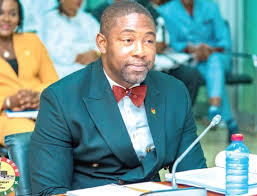The Ministry of Health has called on stakeholders in health to mobilise domestic and international funding needed to sustain efforts towards the elimination of malaria by 2028.
Dr Bernard Oko-Boye, the Minister-designate for Health, made the call in a speech read on his behalf at the launch of the 2024 World Malaria Day in Accra.
He said funding was crucial to ensure the elimination strategy of malaria worked.
World Malaria Day is a day set aside to highlight the need for continued investment and sustained political commitment to malaria prevention and control of the disease.
The global theme for the 2024 celebration is “Accelerating the Fight Against Malaria for a More Equitable World”.
However, a local theme; “Health Equity, the Cornerstone of Malaria Elimination in Ghana” has been adopted to fit the country’s peculiar situation.
The Day, which was instituted by the World Health Organisation (WHO) Member States during the World Health Assembly of 2007, is also observed to highlight successes in the fight against malaria, and individual responsibilities to end malaria and ensure a malaria-free world.
Globally, it is reported that 249 million new malaria cases and 608,000 malaria deaths were recorded in 2022.
Dr Oko-Boye while commending the Ghana Health Service for the successes chalked in malaria prevention unveiled the National Malaria Elimination Strategic Plan 2024-2028.
It is a comprehensive roadmap that not only paves the way towards a malaria-free future, but also signifies the unwavering commitment to the cause.
He said to ensure Ghana was free from the burden of malaria, every citizen, regardless of location or socio-economic background, had equitable access to effective malaria prevention, diagnosis and treatment, there was the need to strengthen surveillance, scale up vector control, and promote community engagement and research innovation.
The Minister Designate, while pledging the Ministry’s continued support, called for a strong collaborative effort, renewed mindsets and reaffirmed commitment to this new era of malaria elimination.
Dr Patrick Kumah Aboagye, the Director-General of the Ghana Health Service, outlining some of the strategies to ensure elimination, said the existing interventions had been expanded.
This includes Mass Drug Administration, post-discharge Malaria chemoprevention, intermittent preventive treatment of malaria in schoolchildren, and scaling up malaria vaccination.
He said despite the challenges, the malaria testing rate had improved considerably from 38 per cent in 2012 to 98.2 per cent in 2023.
Malaria prevalence has reduced from 27.5 per cent in 2011 to 8.6per cent in 2022, and deaths due to malaria have also reduced from 2,799 in 2012 to 146 in 2023 respectively.
“This consistent reduction in morbidity and mortality assures us all about the effectiveness of our interventions, and this amplifies our hope of elimination with improved sustained efforts,” DG stated.
Dr Kumah-Aboagye was optimistic that Ghana could eliminate malaria if all participated as stakeholders, ensuring that no one was left behind.
He assured the commitment of the GHS to ensure that vulnerable people such as pregnant women, children under five and other groups received quality healthcare at the primary level saying, “This will enable people suffering from malaria to receive quality healthcare close to where they live and work.
Dr Frank Lule, the World Health Organisation Country Representative, said malaria remained a significant global health challenge, particularly in the African Region with progress in reducing malaria stalled globally in recent years.
He said ensuring the elimination of malaria was feasible and called for the ‘highest political will’ and investment.
“WHO and partners are, therefore, calling for a high-level commitment to malaria elimination through investment in the fight against the disease to ensure a Malaria Free Ghana.”
Ohene Yere Gifty Anti, the National Malaria Champion, urged the public to believe and play their individual roles towards malaria elimination, adding “We all have a role to play to achieve this, it is possible.”
She emphasised the need for people to sleep under treated bed Nets, test for malaria before commencing treatment and always keep their environment and surroundings clean to prevent malaria.
At the launch were health experts, development partners, health professionals, and students.

